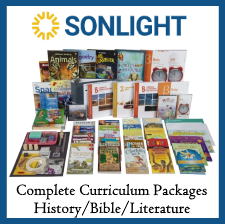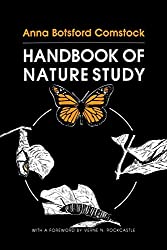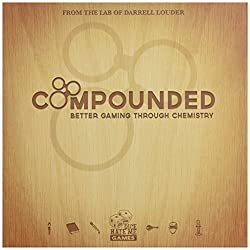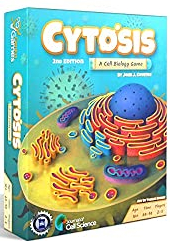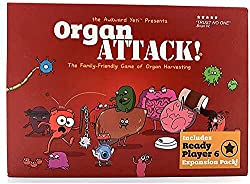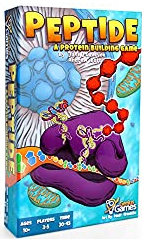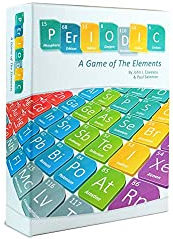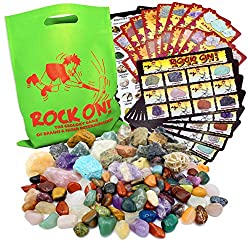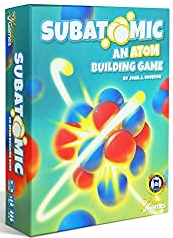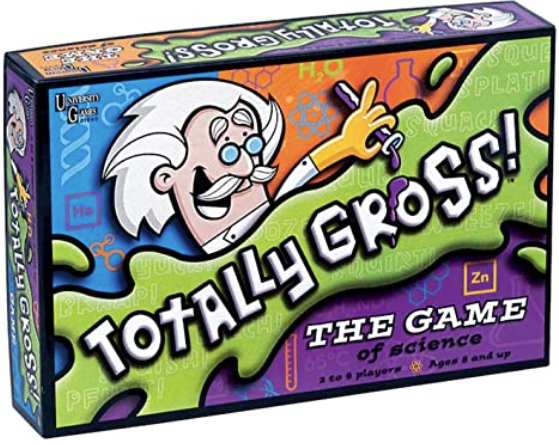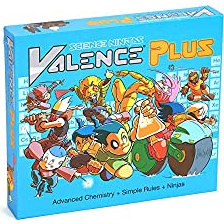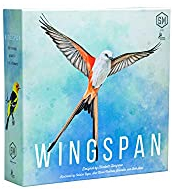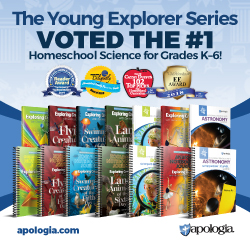Science Curriculum
Types of Science Curriculum
Science curriculums can vary as much as the authors who write them. They are first broken down into the main categories of Christian, Secular and Neutral. Then those are subdivided further into Young Earth, Old Earth, and Theistic Evolution beliefs. Since Science discusses origins, these can be big motivators for choosing the right curriculum for your family. Once that's decided, then you need to choose between experiment, text or narrative based.Legend
$ - Below $50/year$$ - Between $50-$100/year
$$$ - Between $100-$150/year
$$$$ - Above $150/year
$$
A Reason for Science

A Reason For Science focuses on teaching the principles of science with experiments, while relating it to scripture.
Grade:
1st-8th
Style:
Workbook & Experiments
$-
$$$$
$$$$
Alpha Omega


Alpha Omega publishes several types of homeschool curriculum including Monarch online, Switched-On-Schoolhouse, LifePac, traditional-style Horizons, and Weaver, a unit study approach.
Grade:
K-12th
Style:
Workbook
$$
Apologia is a favorite among many for its interactive, Charlotte Mason-inspired conversational tone. It is a mostly text-based approach to learning with some experiments. The books are written from a Biblical worldview, emphasizing narration, notebooking, and hands-on activities or projects.
Grade:
PreK-12th
Style:
Textbook & Experiments
$-$$
Similar to Apologia, the series is very conversational in tone with some experiments. The elementary and middle school series follows people and events through history to explain the development of science. Starting with Science In The Beginning, followed by Science in the Industrial Age, Science in the Ancient World, Science in the Age of Reason, and finally Science in the Scientific Revolution.
Grade:
K-8th
Style:
Textbook & Experiments
$$$$
Bob Jones uses a traditional approach to learning science with a Biblical viewpoint. Children can explore God's creation, investigating the universe, the structure and inhabitants of the earth, and the workings of cells and atomic reactions.
Grade:
K-12th
Style:
Textbook & Experiments
The Good and the Beautiful science curriculum is a thorough study into selected subjects. Choose what science topics you want to cover for a quarter or several topics for the whole year. The units are geared toward K-8th, but include different levels of activites to suit each age group.
Grade:
K-8th
Style:
Textbook & Notebooking
Khan Academy embraces the theistic evolutionary view to science. They teach that while God initially created the world, he used evolution to further the design.
Grade:
K-12th
Style:
Online Interactive
$$$
NOEO uses Charlotte Mason's idea of living books mixed with the classical method to teach science. The program also has kits available for experiments.
Grade:
K-8th
Style:
Books
Style:
Workbook & Experiments
The series is ideal for the visual learner. A lab book is included for doing experiments. Mostly neutral text, with some references to intelligent design.
Grade:
K-8th
Style:
Textbook, Workbook, & Experiments
$-
$$$$
$$$$
Reasons Academy


Reasons Academy holds to the old-earth view that God created the world billions of years ago, and continued to create up until the seventh "day" when God rested. Learn about Apologetics, Astronomy, and refuting Evolution.
Grade:
3rd-12th
Style:
Textbook, Workbook, DVD, & Audio
$$-
$$$$
$$$$
Sonlight

Sonlight offers a low-stress, complete Science curriculum, while still including hands-on activities and great books. Sonlight presents both sides of the Old Earth/Young Earth argument without holding to any particular side.
Grade:
PreK-12th
Style:
Workbook, Experiments, DVD, & Literature
$$$$
Supercharged Science is for those who don't have time to teach science or don't have a knack for science themselves, but want to teach it to their children. Available as an online or DVD course with experiments.
Grade:
K-12th
Style:
CD, DVD, & Experiments
$$$$
Time4Learning is a complete science curriculum that uses a secular/neutral approach. An old-earth concept is discussed in the unit on Earth's History.
Grade:
K-12th
Style:
Online Interactive
$$-
$$$
$$$
Exploration Education

Exploration Education is a project-based, hands-on physical science with an interactive CD for lessons. The projects in the each of the levels provide a solid foundation for science courses and make the principles taught tangible and concrete.
Grade:
K-10th
Style:
CD & Experiments
$
The Good and the Beautiful Nature Notebook

The Nature Notebook helps children explore nature and enjoy writing through journal prompts and activities that encourage exploration, imagination, love of nature, and appreciation for God and His wonderful creations.
Grade:
K-8th
Style:
Notebook
Grade:
K-12th
Style:
Book
$
Nature Anatomy by Julia Rothman

These books combine art and science in an educational guide to show the structure, function, and personality of the natural world. The illustrations are paired with interactive activities that encourage curiosity.
Grade:
3rd-8th
Style:
Book
$
The Thinking Tree Nature Study & Outdoor Science Journal

The Thinking Tree journal has 180 lessons and illustrations, inviting students to read, wrtie, draw, color, explore, and appreciate the outdoors while covering a variety of subjects such as science, poetry, and observation instructions. It was designed to be used alongside library books. It was printed with Dyslexie font to make reading simpler for dyslexic students.
Grade:
3rd-8th
Style:
Workbook
Gameschooling
Gameschooling is when board and card games are included in the homeschool experience to help enrich learning in a particular subject. Rather than just playing games for fun, gameschooling emphasizes the educational aspect of playing games. Since children tend to learn best while being engaged and having fun, gameschooling is seen as a great way to solidify material that may not be understood as readily if just reading it from a textbook.
Compounded
Compounded is a strategy game for older kids and adults. It is a game about building chemical compounds through careful management of elements, a fair bit of social play and trading, and just a bit of luck. Players take on the roles of lab managers, hastily competing to complete the most compounds before they are completed by others or destroyed in an explosion.
Compounded is a strategy game for older kids and adults. It is a game about building chemical compounds through careful management of elements, a fair bit of social play and trading, and just a bit of luck. Players take on the roles of lab managers, hastily competing to complete the most compounds before they are completed by others or destroyed in an explosion.
Number of Players:
2-5
Ages:
14+
Cytosis
Cytosis is a cell biology game. Players build enzymes, hormones ,and receptors and play with proteins, carbohydrates, lipids, and DNA or mRNA. Designed to teach cell biology and organelles like nucleus, rough ER, golgi, and mitochondria at middle school, high school, or college levels.
Cytosis is a cell biology game. Players build enzymes, hormones ,and receptors and play with proteins, carbohydrates, lipids, and DNA or mRNA. Designed to teach cell biology and organelles like nucleus, rough ER, golgi, and mitochondria at middle school, high school, or college levels.
Number of Players:
2-5
Ages:
10+
Ecosystem
Ecosystem is an ecology board game. Players build ecosystems of wild animals (such as bears, rabbits, foxes, and eagles) and are rewarded for sustainability and diversity. This game offers strategic play for older kids and adults.
Ecosystem is an ecology board game. Players build ecosystems of wild animals (such as bears, rabbits, foxes, and eagles) and are rewarded for sustainability and diversity. This game offers strategic play for older kids and adults.
Number of Players:
2-6
Ages:
14+
Organ Attack
Organ Attack is a combination of medical terminology and humor. Players use pain, immunity, and other tactical cards to apply or fight off disease and bodily harm. My kids learned several body organs using this game.
Organ Attack is a combination of medical terminology and humor. Players use pain, immunity, and other tactical cards to apply or fight off disease and bodily harm. My kids learned several body organs using this game.
Number of Players:
2-6
Ages:
8+
Pandemic
Pandemic is a cooperative board game in which players work as a team to treat infections around the world while gathering resources for cures. As a member of a disease fighting team, you work together to keep the world safe from outbreaks and epidemics before it's too late.
Pandemic is a cooperative board game in which players work as a team to treat infections around the world while gathering resources for cures. As a member of a disease fighting team, you work together to keep the world safe from outbreaks and epidemics before it's too late.
Number of Players:
2-4
Ages:
13+
Peptide
Peptide is a biology card game where players build peptide chains out of amino acids. It teaches the genetics of DNA and mRNA translation at middle school, high school, or college levels.
Peptide is a biology card game where players build peptide chains out of amino acids. It teaches the genetics of DNA and mRNA translation at middle school, high school, or college levels.
Number of Players:
2-6
Ages:
10+
Periodic
Periodic is played as a strategic game where players move across the periodic table to collect elements using the periodic trends. Periodic helps to solidify knowledge of the elements on the periodic table. Great for supplementing any Chemistry curriculum.
Periodic is played as a strategic game where players move across the periodic table to collect elements using the periodic trends. Periodic helps to solidify knowledge of the elements on the periodic table. Great for supplementing any Chemistry curriculum.
Number of Players:
2-6
Ages:
10+
Photosynthesis
Photosynthesis is a strategy board game referring to the life cycle of trees. Take your trees through their life-cycle, from seedling to full bloom to rebirth, and earn light points as their leaves collect energy from the revolving sun's rays.
Photosynthesis is a strategy board game referring to the life cycle of trees. Take your trees through their life-cycle, from seedling to full bloom to rebirth, and earn light points as their leaves collect energy from the revolving sun's rays.
Number of Players:
2-4
Ages:
8+
Planet
Planet is an environmental drafting board game featuring unique 3D planet cores. Players must build a perfect world with the ideal conditions for wildlife to flourish. Learn about ecosystems and habitats while building your 3D planet core.
Planet is an environmental drafting board game featuring unique 3D planet cores. Players must build a perfect world with the ideal conditions for wildlife to flourish. Learn about ecosystems and habitats while building your 3D planet core.
Number of Players:
2-4
Ages:
8+
Rock On!
Rock On! is a geology game including rock and mineral specimens and an identification guide. There's five levels of play for up to 6 players, offering fun, challenge, and knowledge for pre-readers through elementary ages and beyond.
Rock On! is a geology game including rock and mineral specimens and an identification guide. There's five levels of play for up to 6 players, offering fun, challenge, and knowledge for pre-readers through elementary ages and beyond.
Number of Players:
Up to 6
Ages:
5+
Subatomic
Subatomic is an advanced game diving into the topics of particle physics and chemistry. Use quarks to build protons, neutrons, and electrons. Use those substomic particules to build elements, just like a particle physicist.
Subatomic is an advanced game diving into the topics of particle physics and chemistry. Use quarks to build protons, neutrons, and electrons. Use those substomic particules to build elements, just like a particle physicist.
Number of Players:
2-4
Ages:
14+
Totally Gross: The Game of Science
Totally Gross covers topics in biology, chemistry, geology, astronomy, zoology, anatomy, and physics. Kids travel around the game board answering questions and engaging in antics. The first player to stretch his/her Totally Gross Slime 10 point spaces and complete a lab experiment wins the game.
Totally Gross covers topics in biology, chemistry, geology, astronomy, zoology, anatomy, and physics. Kids travel around the game board answering questions and engaging in antics. The first player to stretch his/her Totally Gross Slime 10 point spaces and complete a lab experiment wins the game.
Number of Players:
2-4
Ages:
8+
Valence Plus
Valence Plus makes learning about Chemistry fun. Using element cards, you build molecules and accrue points through the number of on the cards. Be careful of an attack from your opponent!
Valence Plus makes learning about Chemistry fun. Using element cards, you build molecules and accrue points through the number of on the cards. Be careful of an attack from your opponent!
Number of Players:
2-4
Ages:
10+
Wingspan
Wingspan is an award-winning family game. Players seek to build their aviary by playing bird cards, gaining food, and laying eggs. Each habitat focuses on different aspects of growth. This game is a favorite in our house and while initially complex, once the rules are understood, it is easy enough for my 9 year old to play.
Wingspan is an award-winning family game. Players seek to build their aviary by playing bird cards, gaining food, and laying eggs. Each habitat focuses on different aspects of growth. This game is a favorite in our house and while initially complex, once the rules are understood, it is easy enough for my 9 year old to play.
Number of Players:
1-5
Ages:
14+
















